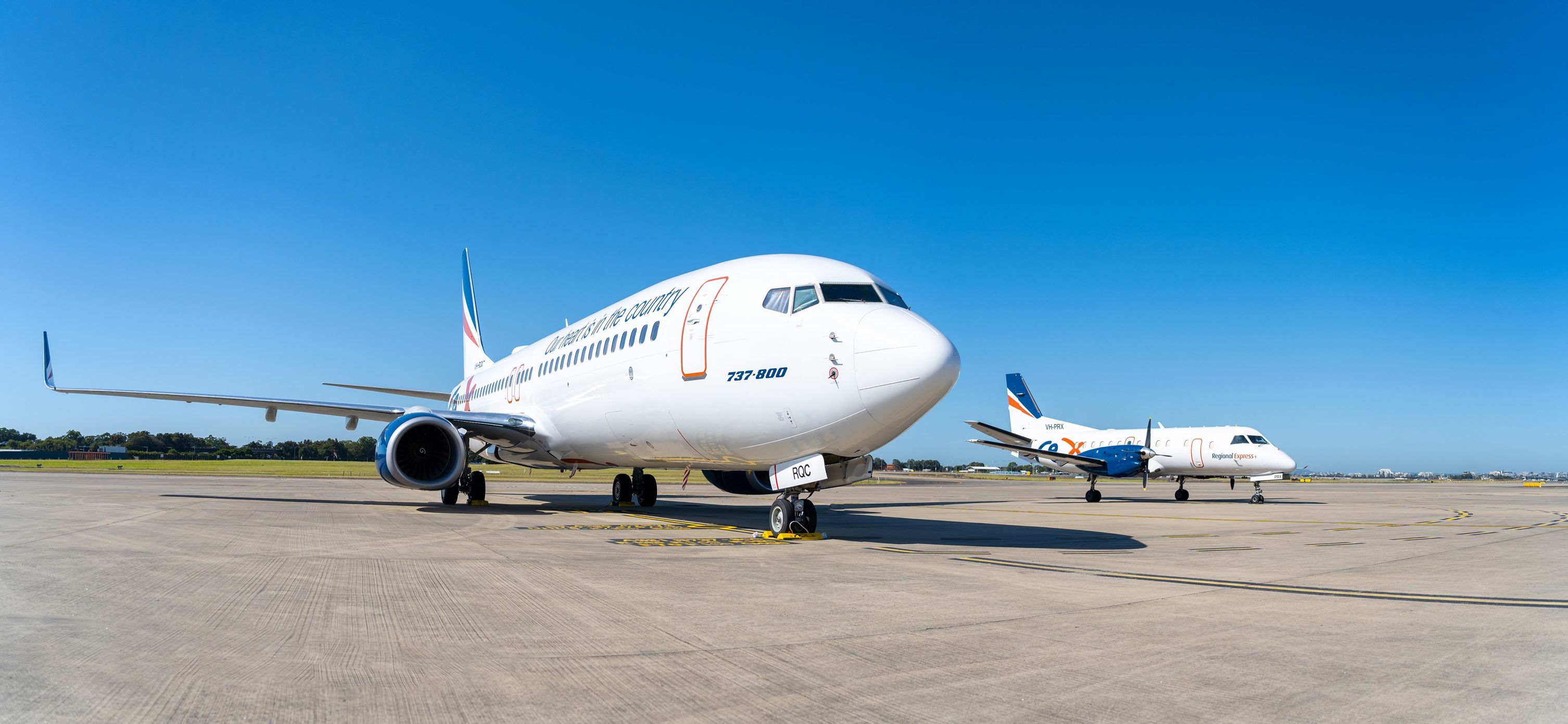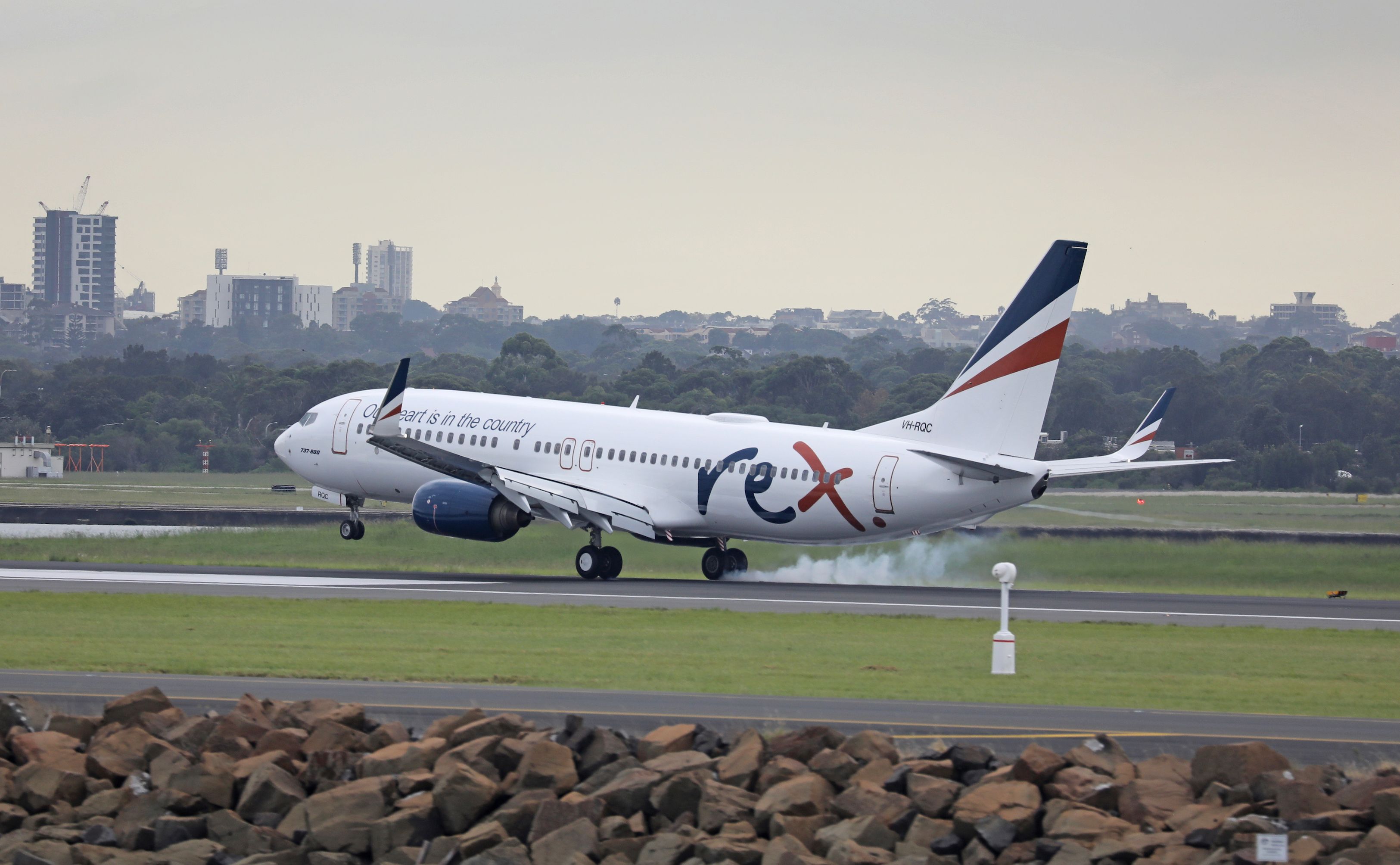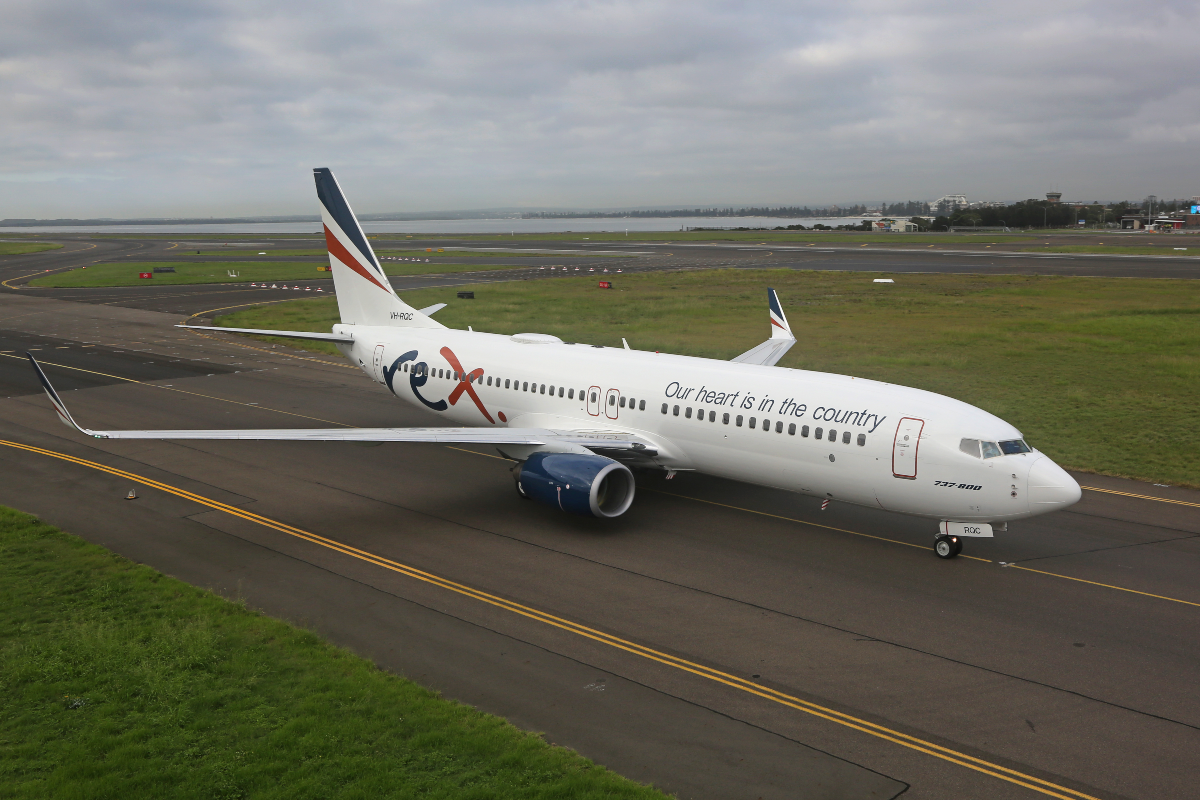When Australia’s largest independent airline Rex launched domestic services in March 2021 there was minimal fanfare and no grand announcements of taking over the nation’s skies. Two years on and Rex is now operating eight domestic routes between six main cities, adding new aircraft and is Australia’s most reliable airline.
Photo: Rex
While there were plenty of doubters that this regional specialist could make the transition to high-capacity jet passenger services, it silenced them long ago. Today Rex took another step forward by adding an eighth Boeing 737-800 to its fleet, with another to follow in September and plans for more on the drawing board.
The Deputy Chairman shares his thoughts
At the end of June, Rex launched a new 737 nonstop service between Adelaide and Sydney, and next month is adding another new domestic service between Melbourne and Hobart, the capital city of Tasmania. While in Adelaide for the launch, Simple Flying caught up exclusively with Rex Deputy Chairman John Sharp to learn more about the airline’s plans for its domestic network, which he described as growing in line with what the market requires.
“When we first started the domestic business we said we would grow it as the market grew and we wouldn’t arrive with a huge fleet of aircraft and expect everybody just to rush down and fill it up. Launching new routes like Sydney – Adelaide fills that original plan of growing as we see the market requires and also fits with our ability to do it, which was the ambition we set two years ago.”
Starting on the Melbourne-Sydney route in the darkest depths of COVID was a feat in itself, but rather than just survive, the airline now operates to the capital cities of Adelaide, Melbourne, Sydney, Brisbane and Canberra, as well as the premier tourist destination of the Gold Coast, with Hobart to follow in a few weeks.
Photo: Rex.
Rex operates a very well-established regional network of more than 50 destinations using Saab 340 turboprops and had to jump through many regulatory hoops to operate high-capacity jet services. The domestic fleet started with 737NGs previously operated by Virgin Australia, but today’s arrival was delivered new to Silk Air in 2014 and re-registered to Singapore Airlines in February 2021 before being parked in May last year.
The latest Boeing 737NG, now registered as VH-8KH with MSN 44217, underwent a heavy maintenance check and repainting in Singapore before arriving in Darwin yesterday. Sharp said that finding the aircraft was challenging enough, but then getting the required maintenance checks done, particularly for aircraft that have been parked, is even tougher.
“While there’s not a shortage of airplanes there is a shortage of slots to do the C-checks that you need to do to bring aircraft that have been pushed up against the fence back online, so that’s a limiting factor. We own our own paint shop but that’s busy with other people’s planes so finding a slot there is hard at times, so we actually had to do a lot of painting elsewhere.”
Photo: Rex
Adding the new aircraft enables the Melbourne-Hobart route but Sharp has a clear vision for Rex to have a complete national domestic network with increased frequencies, which can only be done with more aircraft and crews. He wants to see more frequency on existing mainline routes between Melbourne, Sydney, Adelaide and Brisbane and a bigger network, which hints at services to the remaining state capital Perth.
“We’re diligently trying to add more aircraft and crews and the two coming in will help solve that problem, plus we hope to have another in some months time. That will take our fleet from seven to nine and hopefully ten and beyond so we can offer a full network that goes right across the country to all the state capitals and provides decent frequency to those destinations.”
Customer experience is also getting a boost
On the customer experience side, Rex is developing a suite of new and upgraded lounges, some of which are already under construction. Customer lounges are being built in Adelaide, Melbourne, Brisbane and Sydney airports, which will be heaven for regional customers flying into those hubs and joining a connecting domestic service. Sharp also mentioned that Rex is launching a Frequent Flyer program in the near future and will also be announcing more new routes and frequencies.
Photo: Regional Express
The Australian domestic aviation scene is rapidly changing, with new entrants Rex and Bonza plotting their own unique paths while Qantas, Jetstar and Virgin Australia go about fiercely protecting their long-held market share. When asked if there was room for all these airlines Sharp, a former Australian Federal Government minister for transport and regional development, said:
“It’s been more challenging of late and some people say Australia’s only a two airline country, but I’ve always believed there’s room for more. There’s room for a very careful, considered domestic airline operator who doesn’t get stars in their eyes and who will grow the business in a manner that is digestible in a way that you can sustain.”
That sounds like a plan and the undeniable fact is that when Rex arrives on a new domestic route the ticket prices tumble and service levels go up. With Australians enduring months of near-record high airfares that is certainly something to be celebrated.
Have you flown on a Rex 737 yet? Let us know in the comments.




-Source-Rex.jpg)


